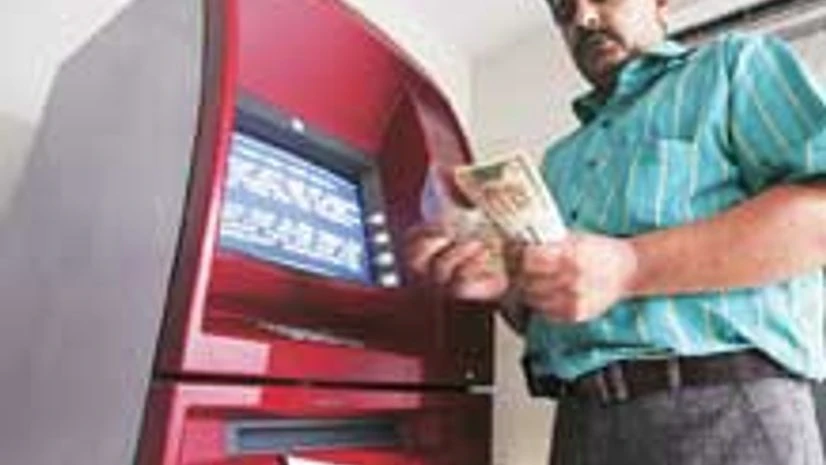On the issue of capping free transactions at automated teller machines (ATMs), banks have found support from the finance ministry.
Last week, the Reserve Bank of India allowed banks to charge customers for using own-bank ATMs more than five times a month. Earlier, the cap and the charge were applicable to non-home bank ATMs alone.
The cap includes transactions such as balance enquiry and cheque book request.
Also Read
G S Sandhu, secretary in the Department of Financial Services, justified the move on the grounds that banks had to recover the huge costs they were incurring. “ATMs cost money...banks have been incurring heavy expenditure on ATMs. They have been subsidising that. The move is aimed at curtailing the subsidy. So, five transactions are allowed free of charge and beyond that, there will be some charge,” Sandhu said on the sidelines of an annual general meeting of the Indian Banks’ Association.
HDFC Bank Managing Director Aditya Puri said he believed a customer should be charged for services. He cited a study by bankers that indicated usually, a person didn’t carry out more than four ATM transactions a month. “Banks are commercial organisations. They are entitled to recover their costs. They will charge as long as the charge is not usurious; otherwise, they cannot exist. Our regulators will look at these so that these aren’t excessive,” Puri told Business Standard at the same event.
“If you are a customer and go into the bank, you will be charged. If you use the ATM, there is a cost. I have to pay rent; I have to pay telecommunication costs, etc. We are giving five transactions free because of the relationship. Beyond five, you will have to pay, which is very fair,” Puri said.
The finance ministry assured more ATMs would be set up and alternative channels of transactions would be promoted. “There is another area we are going to propagate — the use of mobile phones for mobile transactions. So far, only smartphones have this facility (mobile transactions). This facility will also be available on basic phones, which are more in number,” he said.

)
